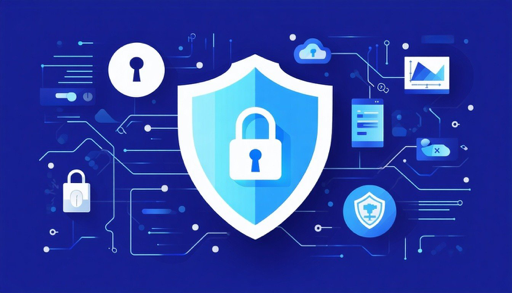Imagine this: You arrive at work on a Tuesday morning, ready to tackle your to-do list, only to find your critical business accounts locked. Your customer data, financial records, maybe even your company emails – compromised. All because a cybercriminal got their hands on one employee’s password.
It sounds like a scene from a movie, but it’s an increasingly common reality for businesses right here in San Diego and beyond. The hard truth is, even if you enforce complex password policies, passwords alone are often the weakest link in your company’s security armor. They get guessed, phished, leaked in other breaches, and reused across sites.
But there’s a powerful, readily available defense that significantly shores up this weakness: Multi-Factor Authentication (MFA). Think of it as adding a high-security deadbolt and a video doorbell to your office’s front door, instead of just relying on the standard key lock.
The Password Problem: A Leaky Bucket
Why are passwords, even the “strong” ones, so vulnerable?
• Human Nature: People reuse passwords or create predictable patterns.
• Phishing Scams: Clever emails or messages trick users into revealing credentials.
• Brute Force Attacks: Automated tools try millions of combinations.
• Credential Dumps: Passwords stolen from other website breaches are sold online and tested everywhere.
Relying solely on a password in today’s digital world is like trying to carry water in a leaky bucket. It’s just not secure enough for your valuable business data.
So, What Exactly is Multi-Factor Authentication (MFA)?
Simply put, MFA requires anyone trying to log in to prove their identity in more than one way. It’s based on the principle that while a hacker might steal one piece of identifying information (like your password), it’s much harder for them to steal two or more different types of credentials.
You’ve probably heard of Two-Factor Authentication (2FA) – that’s the most common form of MFA, requiring exactly two distinct pieces of proof.
How Does MFA Work? The ‘Factors’ Explained
MFA typically combines verification methods from at least two of these categories:
1. Something You Know: This is usually your password or a PIN.
2. Something You Have: This is a physical item in your possession, like:
▪ Your smartphone (receiving a code via an authenticator app like Google Authenticator, Microsoft Authenticator, or Authy).
▪ A code sent via SMS text message (less secure than apps, but better than nothing).
▪ A physical hardware security key (like a YubiKey) that plugs into your computer.
3. Something You Are: This involves biometrics – unique biological traits:
▪ Fingerprint scan.
▪ Facial recognition.
▪ Retina scan.
A common and effective MFA setup is combining your password (something you know) with a time-sensitive code from an authenticator app on your phone (something you have).
Why MFA is Non-Negotiable for Your Business
Okay, it adds an extra step – but the security payoff is massive and essential:
• Dramatically Reduced Risk: Experts consistently find that MFA blocks the vast majority (often cited as over 99%) of automated attacks targeting account compromises. Stolen passwords become largely useless to attackers.
• Protection from Common Threats: MFA is one of the most effective ways to stop damage from phishing attacks and credential stuffing (where hackers try stolen passwords on multiple sites).
• Secures Your Remote & Hybrid Workforce: With team members accessing company resources from various locations, MFA ensures only legitimate users get in, protecting your network perimeter wherever it extends.
• Safeguards Sensitive Data: It puts a stronger lock on your critical assets – customer information, financial data, intellectual property – protecting your reputation and bottom line.
• Meets Compliance & Insurance Needs: Many industry regulations (like HIPAA, CMMC) and cyber insurance policies increasingly require MFA implementation as a baseline security measure.
Getting Started: Where to Apply MFA First?
Implementing MFA doesn’t have to be an overnight overhaul. Start by protecting your most critical access points:
• Email Accounts: Especially cloud platforms like Microsoft 365 or Google Workspace.
• VPN / Remote Access: Anyone logging into your network remotely.
• Cloud Applications: CRMs, financial software, file sharing platforms.
• Administrator Accounts: Any accounts with elevated privileges.
KeyMSP: Your Partner in Seamless MFA Implementation
Understanding the need for MFA is one thing; implementing it smoothly and effectively across your business is another. Which systems need it? Which MFA methods make the most sense for your team’s workflow? How do you manage it all without disrupting productivity?
That’s where KeyMSP comes in.
As your dedicated IT partner, we specialize in taking the complexity out of cybersecurity. We don’t just tell you what you need; we help you implement it right.
Here’s how KeyMSP helps businesses like yours deploy robust MFA:
• Security Assessment: We analyze your current setup to identify the highest-risk areas and integration points.
• Tailored Solutions: We recommend and configure the MFA tools (authenticator apps, hardware keys, etc.) that best fit your specific business needs, budget, and existing technology.
• Smooth Rollout: We manage the deployment process, ensuring minimal disruption to your team.
• Employee Training: We provide clear guidance to your staff so they understand why MFA is important and how to use it easily.
• Ongoing Management & Support: We help manage the MFA system, assist users, and ensure it stays effective as your business evolves.
Don’t Leave Your Digital Door Unlocked
In today’s world, relying solely on passwords is a significant gamble you can’t afford to take. Multi-Factor Authentication isn’t just a tech trend; it’s a fundamental security control for any modern business.
Ready to significantly boost your company’s defenses against account takeovers and data breaches?
Stop worrying about weak passwords. Contact KeyMSP today for a personalized security consultation. Let our expert team help your business implement the right MFA strategy for true peace of mind.

